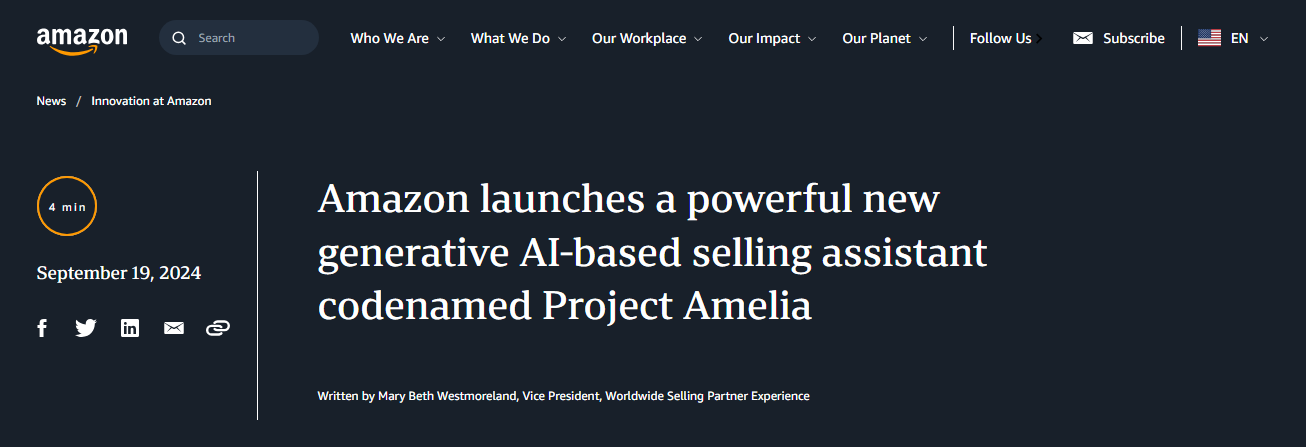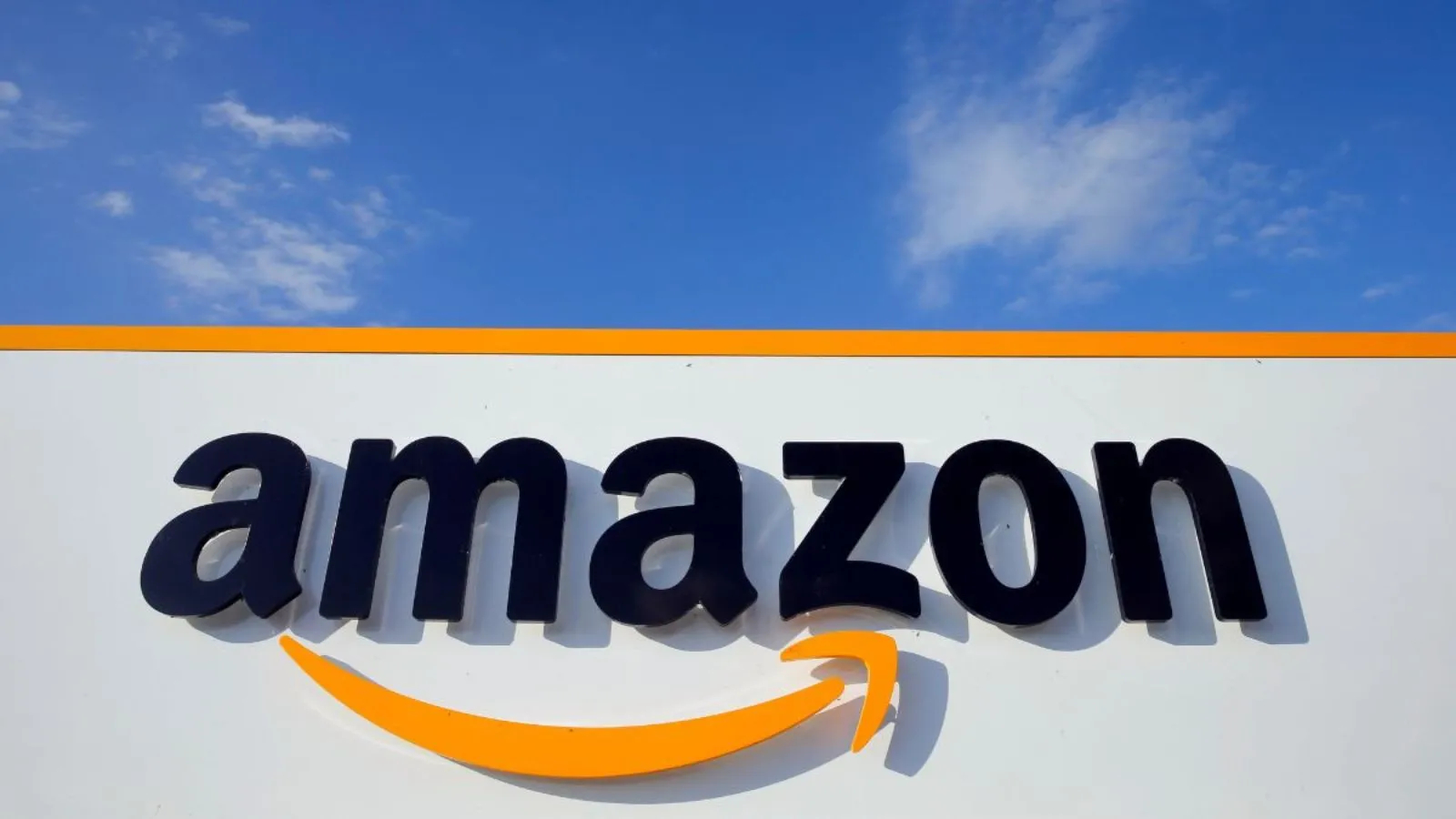Amazon Launched AI Assistant "Amelia" to AccelerateE-Commerce Automization
Amazon launched a generative AI assistant called "Amelia" for platform merchants, hoping to increase the level of automation in its e-commerce business.
On September 19, Eastern Time, Amazon launched a generative AI assistant named "Amelia", designed to help independent sellers on its platform manage sales targets, maintain inventory, and handle product advertising, while quickly answering questions, providing professional advice, and offering tools to improve operational efficiency and sales performance.
By applying Amelia within its retail product portfolio, Amazon aims to increase the level of automation in its e-commerce business.
Statistics show that since 2017, Amazon's product sales have accounted for more than half of its total sales, with that figure soaring to 61% in Q2 of this year. Therefore, to maintain the core of its e-commerce business, Amelia will swiftly address account issues for third-party merchants, a key problem the platform has faced for a long time.
Currently, Amelia is in an internal testing mode, available only to a select group of U.S. sellers. In the coming weeks, the scope will gradually expand, with plans to launch in other countries later this year and to offer multilingual versions.

Over the past year, Amazon has continued to make strides in the field of generative AI, launching various AI products.
In December of last year, Amazon introduced the enterprise chatbot "Amazon Q," focusing on quick access to or management of data, code, and infrastructure on the AWS platform and its connected systems. Prior to that, Amazon also planned to upgrade its Alexa voice assistant to add generative AI features powered by Anthropic's Claude AI model. In addition, it has invested billions in Anthropic, its competitor to OpenAI, marking its largest venture investment to date.
The company's CEO, Andy Jassy, has pointed out that increasing capital expenditure is a necessary condition to enter the unprecedented opportunities presented by generative AI. On the other hand, competitors like OpenAI's ChatGPT, Google's Gemini, and Microsoft's Azure cloud platform remain ahead, making it imperative for Amazon to catch up.
Dharmesh Mehta, Amazon's Vice President of Global Selling Partner Services, also stated that more and more merchants are using Amazon's AI services. Among the company's millions of third-party sellers, over 400,000 are using Amazon's AI listing tools, up from 200,000 in June.

The company describes Amelia as an "integrated sales expert based on generative AI," accessible through the third-party seller dashboard, Seller Central.
Moreover, Amelia is built on Amazon's generative AI model, Bedrock, trained on publicly available online data, along with information extracted from Amazon seller resources, FAQs, and other publicly available websites. Dharmesh Mehta emphasized that specific data from Amazon sellers is always strictly protected, and that model has never been trained on that specific data.
Specifically, Amelia covers three key areas:
- Basic Knowledge Questions: Sellers can ask specific questions, and Amelia will retrieve relevant information from Seller Central and other highly accurate sources, quickly summarizing the findings.
- Status Updates and Metrics: Sellers can quickly access sales data and customer traffic information, and inquire about key business conditions through questions related to business progress and sales figures. Amelia will provide summaries and comparative data on recent sales, units sold, and website traffic for deeper insights.
- Actions and Problem Solving: Amelia can provide direct solutions for complex issues and tasks, diagnose problems, and even take action on behalf of sellers. By simply reaching out to Amelia, sellers can receive personalized guidance, and if needed, Amelia can assist in investigations or contact support personnel to ensure issues are resolved promptly.
By streamlining sellers' business needs and inventory management burdens, Amelia will significantly reduce the time, effort, and resources required for sellers to manage their operations, allowing them to focus on product upgrades, exploring operational models, and enhancing user experience.

On the same day, Amazon also launched an AI video generator called "Video Generator," which can convert a single product image into a video demonstration and generate product listings in bulk based on an entire catalog.
According to Jay Richman, Vice President of Amazon Advertising, Video Generator is currently being tested with select U.S. advertisers and will undergo fine-tuning before a broader release.
·Original
Disclaimer: The views in this article are from the original Creator and do not represent the views or position of Hawk Insight. The content of the article is for reference, communication and learning only, and does not constitute investment advice. If it involves copyright issues, please contact us for deletion.